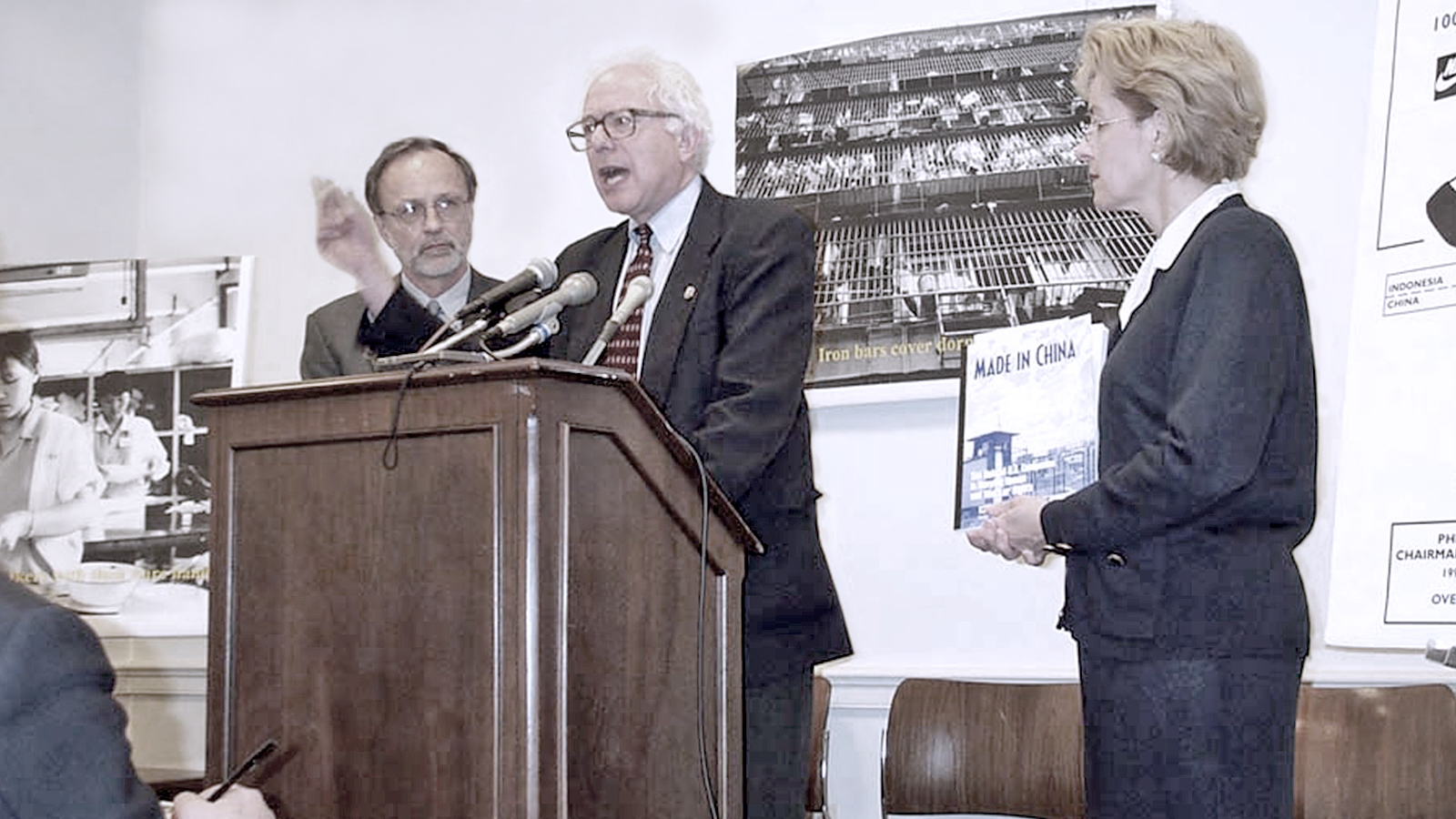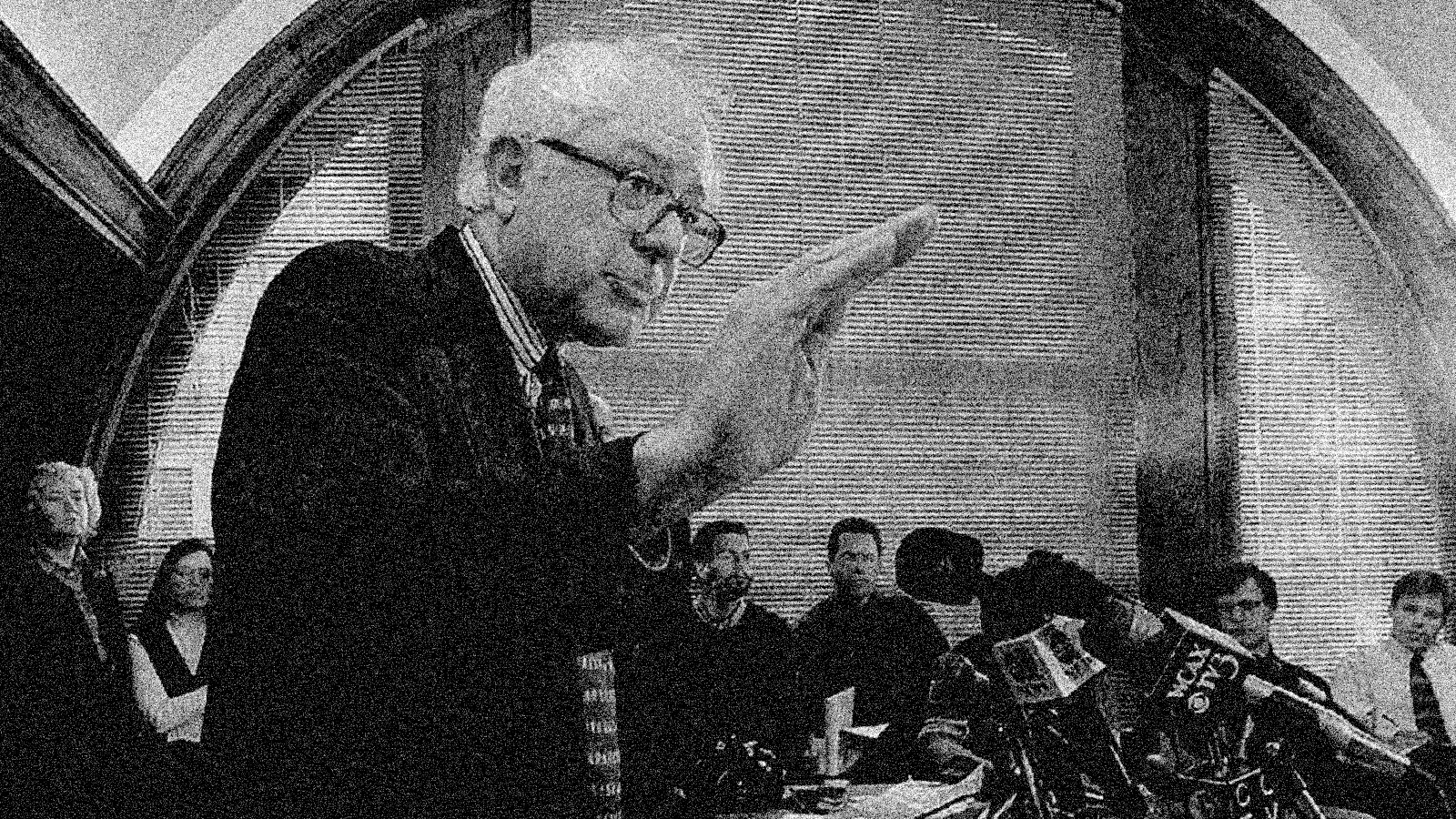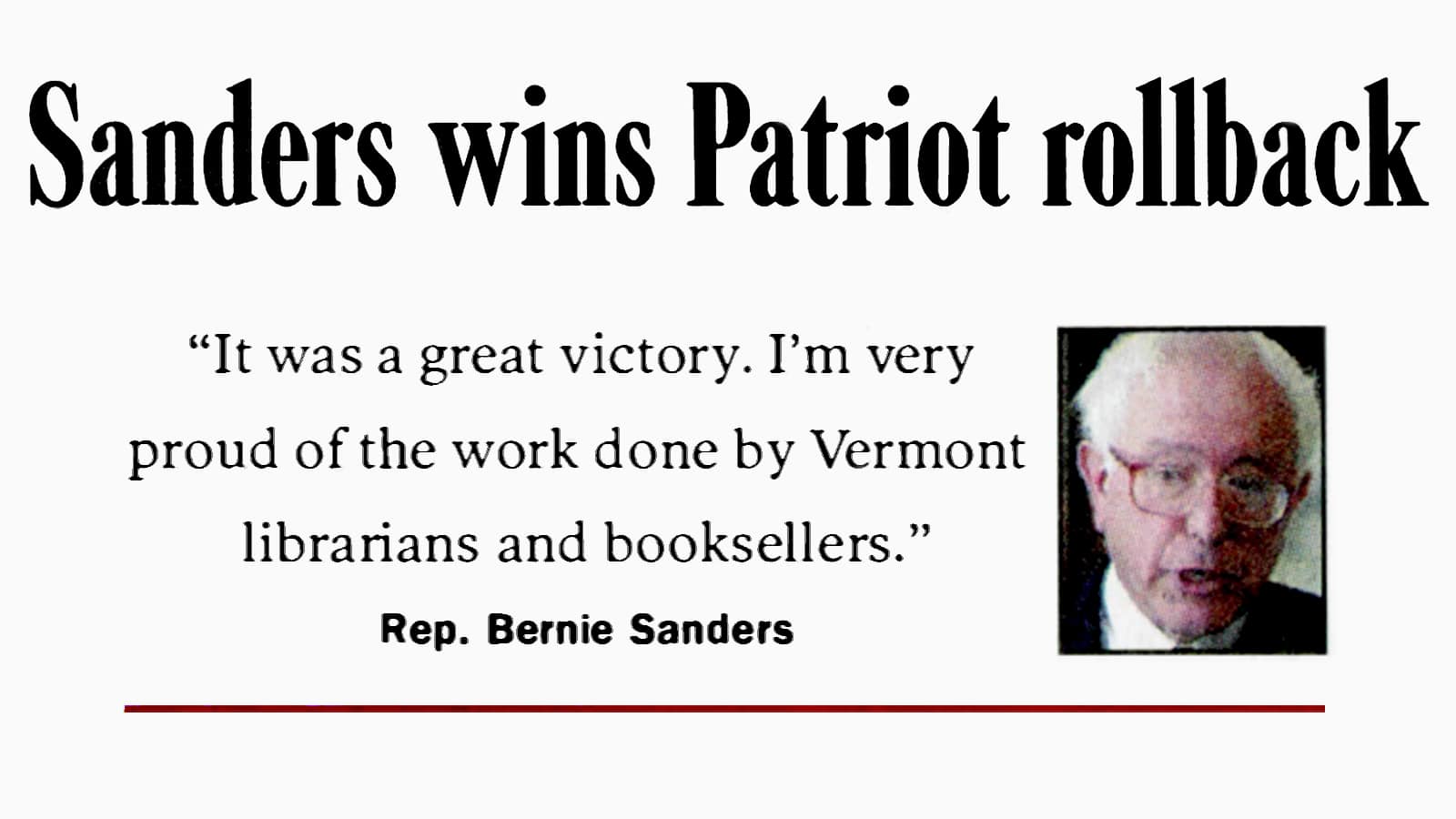In 2000, Rep. Bernie Sanders opposed participation in the Permanent Normal Trade Relations (PNTR) agreement with China and led efforts to reverse it by introducing new legislation that received support from 71 co-sponsors. Sanders’ reasons for opposing PNTR were similar to his opposition to NAFTA: American workers would lose jobs to China, and Chinese workers would receive starvation wages.
Sanders called attention to a report documenting the massive, last-minute flood of campaign contributions by a handful of multinational corporations as proof that corporate America was trying to buy the vote in Congress on Permanent Normal Trade Relations (PNTR) with China. According to the report by the Center for Responsive Politics, the member corporations of the Business Roundtable spent more than $58 million in soft money, PAC, and individual contributions to federal parties and candidates during the cycle – a 32 percent increase from 1996 and a 25 percent increase from 1998. Additionally, the group has spent more than $10 million in a few weeks on a massive media advertising blitz, urging the passage of PNTR. The pace of contributions accelerated as the vote approached, with the Business Roundtable making nearly $4.2 million in soft money contributions in March alone – double what it gave in February. Sanders said the numbers were proof that big business was using big money to manipulate Congress into voting against the interests of the vast majority of Americans.[1]
In a press release highlighting the issue Sanders said, “In preparation for one of the biggest votes in Congress, the multinational corporations are spending millions of dollars to ensure their interests are protected. Most of the companies documented in this report have a strong profit motive to see PNTR passed, while the vast majority of working Americans know that PNTR is a vehicle for companies to send jobs to a country that allows its workers to be paid 20 cents an hour. Tomorrow, Congress will have to choose whether to buckle to the millionaires and billionaires who will make even more money if this deal is passed or stand with the millions of ordinary Americans who will be hurt by it. I hope that Members of Congress will not sell their votes and that we will instead send a strong message to corporate America that protecting American workers is more important than rewarding China for its terrible record on labor, the environment, and human rights.”[1]
Several companies that stood to increase their profits are also among the top political contributors. Citigroup, which has led the banking industry in lobbying for China trade, contributed $231,000 in soft money in March alone. In another example, Philip Morris, which would benefit from slashed tariffs and cheaper labor from PNTR, has contributed more than $1.6 million. Sanders said the accelerated contributions leading up to the vote are the latest and most evident proof of the need for serious campaign finance reform.[1]
Sanders said, “Regardless of what happens, the fact that so much money is flooding into Congress at such a sensitive time is proof that we need real campaign finance reform. There is simply no reason why this vote should even be close when the hard facts show that this deal is a disaster for the vast majority of working Americans.”[1]
 Back to Timeline
Back to Timeline


